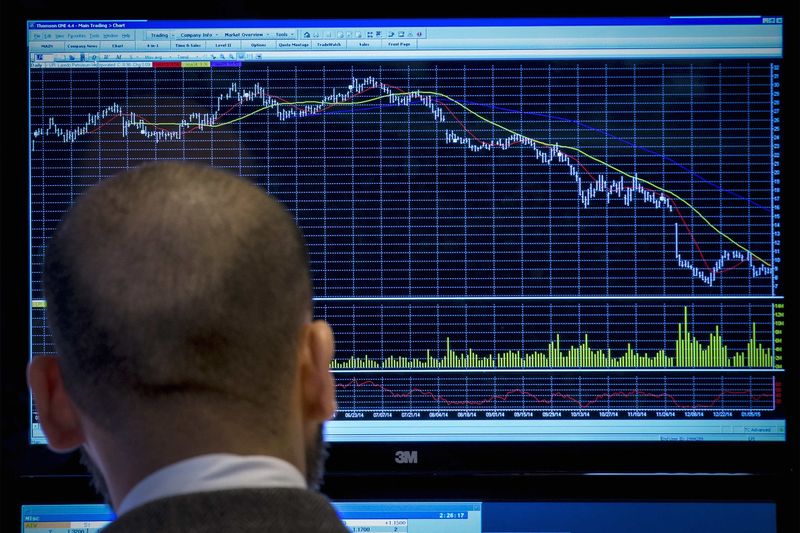© Reuters. A smartphone with a displayed TSMC (Taiwan Semiconductor Manufacturing Company) logo is placed on a computer motherboard in this illustration taken March 6, 2023. REUTERS/Dado Ruvic/Illustration
By Sarah Wu and Yimou Lee
TAIPEI (Reuters) – Taiwanese chipmaker TSMC posted a 25% fall in third quarter net profit on Thursday, beating expectations, and said the semiconductor industry could be poised for recovery.
For the year ahead, the world’s largest contract chipmaker predicted healthy growth and a drop in industry inventory levels.
Demand for personal computers and smartphones, two of TSMC’s business drivers, is expected to lead the recovery, with artificial intelligence (AI) growth also increasing demand for its advanced chips and advanced packaging.
“We can expect 2024 to be a healthy growth year for TSMC,” CEO C.C. Wei told an earnings briefing, with the company expecting to “do better than the overall industry” next year.
“In these couple of months, we have started to see demand stabilise in the PC and smartphone end market” and inventory controls have become “more healthy than we thought”.
“Right now, do we see the bottom? Very close,” Wei said, but added it was too soon to say how strong the recovery would be as customers remain cautious because of macro weakness and China’s slow economic recovery.
Investors have watched for signs to gauge the strength of any recovery, as TSMC’s tool supplier ASML warned of flat 2024 sales on Wednesday, citing caution by chipmakers in new investment.
Given lingering uncertainty, TSMC said it has “appropriately tightened” its capital spending for this year to about $32 billion. Capital spending for the three months to September slid 13% from the previous quarter to $7.1 billion.
RIVAL SAMSUNG ELECTRONICS
The forecast-beating third quarter results from the tech bellwether follow better than expected quarterly profit from rival Samsung Electronics (KS:) earlier this month.
Taiwan Semiconductor Manufacturing Co Ltd (TSMC), a major Apple (NASDAQ:) and Nvidia (NASDAQ:) supplier, said July-September net profit fell to T$211 billion from T$280.9 billion a year earlier.
The profit beat a T$195.5 billion LSEG SmartEstimate, which is weighted toward forecasts from analysts who are more consistently accurate.
TSMC, Asia’s most valuable listed company, said third quarter revenue dropped 14.6% to $17.3 billion, in line with the company’s previous forecast of $16.7 billion to $17.5 billion.
Revenue from the high performance computing segment, which includes high-end AI chips, accounted for 42% of its total sales, down from 44% in the previous quarter but up from 39% a year earlier.
Wei attributed the auto segment’s contraction to 5%, from 8% the previous quarter, to the industry adjusting inventory after three years of “very strong” demand. He said he expected demand to rise next year, as more electric vehicles hit the road.
As the leading manufacturer of advanced chips, TSMC must navigate an uncertain industry outlook and a U.S.-China chip spat that could make it vulnerable.
“The recent surge in AI-related demand supports our already strong conviction that demand for energy efficient computing will accelerate,” Wei said, adding the company has received strong customer interest in its 2-nanometre technology, which will be its most advanced and energy efficient.
As TSMC develops cutting-edge technology, Wei said the greatest challenge would be cost, as inflation drives up the price of chipmaking tools.
“I want to reduce cost so that more customers could afford it,” he said.
TSMC’s Taipei-listed shares fell 27.1% in 2022 but are up 22% so far this year, giving the chipmaker a market value of $432.3 billion. The stock rose 1.1% on Thursday versus a flat benchmark index.
Read the full article here





